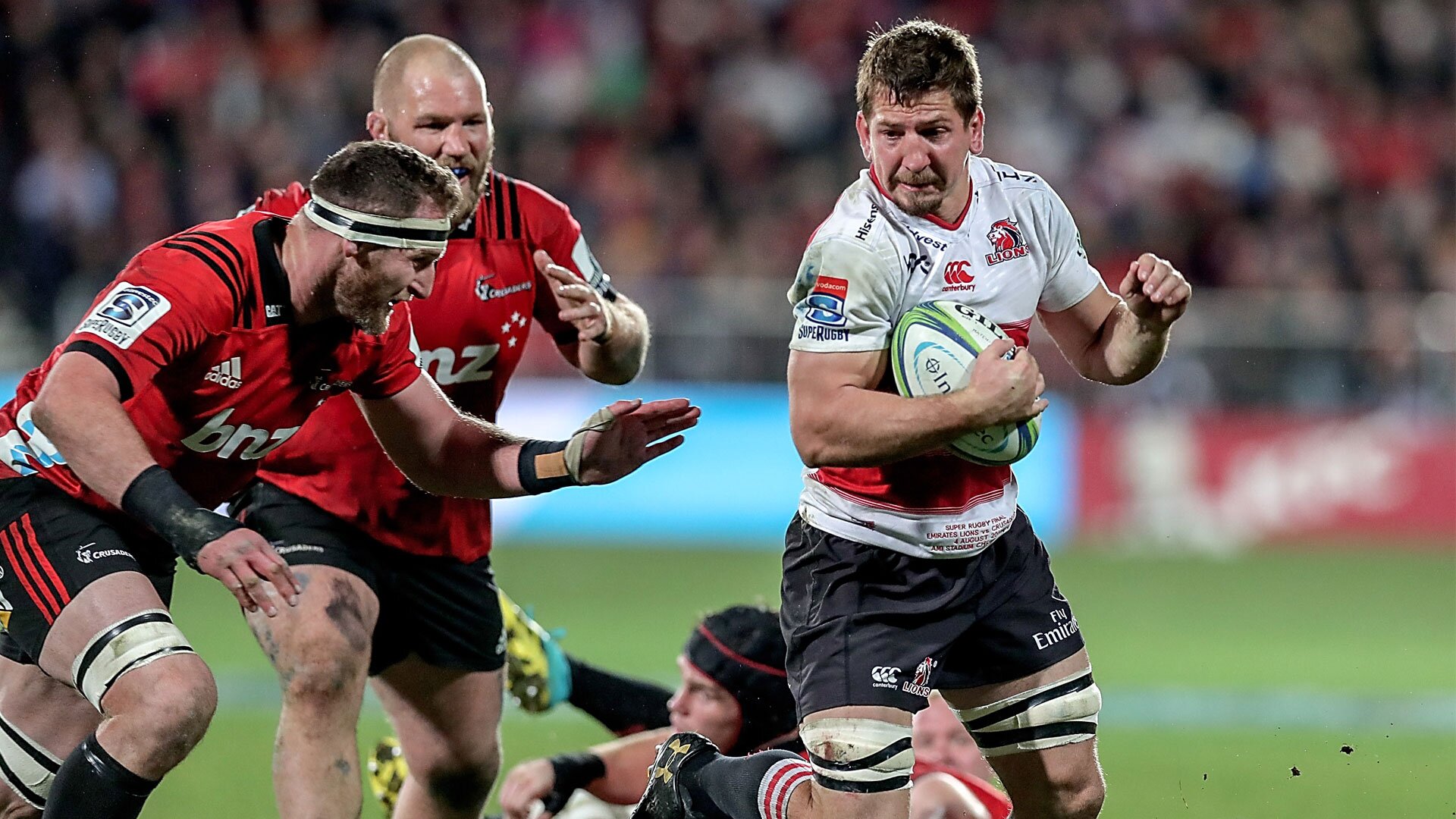
Sir Steve Hansen on Super Rugby's issues: South Africa, ego and U21 talent

The Wallabies and All Blacks have both suffered historic losses at the Rugby World Cup, fueling criticism over the state of Super Rugby and its ability to develop and ready players for the international level.
Legendary All Blacks coach Sir Steve Hansen has thrown his experienced two cents to the mix, highlighting the loss of South African teams from the competition, Australia’s stance on dropping to four teams and the lack of U21 competition as key areas to address as soon as possible.
The 2015 World Cup winning coach told The Platform “there’s a few issues going on in southern hemisphere rugby” and pointed to the success of the northern hemisphere, and how the European teams are developing their young talent as a reference for what needs to change.
Also highlighted were the successful Super Rugby models of the past, and while a return to those models signals big change, they’re changes that Hansen believes would benefit the competitiveness of the southern hemisphere nations moving forward.
“A maximum of four (Australian teams) would make it better and that’s when Australian rugby was really strong,” he said. “They had three sides that were really competitive every weekend in Super Rugby. It was forcing us to get better ourselves.
“We are missing having South Africa in there, that style of game and maybe bringing back the Argentinians, finding a way to get them back into the competition will be good too.”
In recent decades Super Rugby has provided the platform for players to develop into international stars, Hansen says “there’s no reason” why the competition can’t replicate that success in the future.
“But I think we’d all agree, at the moment it’s not the competition we need it to be and we have to find a willingness to work together within the country and across the countries to come up with some solutions. That’s been the stumbling block so far.
“There’s one or two things that get in the way; one is our ego of not wanting to give up a team. We saw Australia try to do that and the Western Force dug their toes in and they had nowhere to go.
“So internally, at some point, we have to say to ourselves ‘this is what’s best for our game’ and when you’re hearing the likes of (Stephen) Hoiles, the ex-Wallaby player, coming and saying the same thing then you know that that’s the obvious thing to do.
“But we have to break down the barriers that are stopping us from doing that and within Australian sport, their biggest problem is state vs state, no one wants to give an inch and if we’re not prepared to give an inch then we’re going to lose a mile at the top end.
“Look, I’m not saying for Eddie (Jones) and the players, there’s no fault of theirs in this World Cup. They’ll reflect on it and say yes, we could have done some things better.
“But Rugby Australia has a problem because it’s not producing players or coaches that can play and coach at that level, not enough of them to create competition. So, they have to do something different and they have to be prepared to challenge themselves around that. As do we.
“Now that we don’t have South Africa playing, how do we find that competition? What are we doing with our under-21s and how do we get them more games and start making that team more important because one of the things the Northern Hemisphere have done, they’ve done really well in developing their under-21 players.
‘They’re winning World Cups and so forth, they play a Six Nations, they’re mirroring what they do at a higher level so that’s giving young guys a whole lot of experience. Our guys aren’t getting that and I know that New Zealand Rugby’s looking at certain things they want to do but we just need to get on with it.
“But all this costs money and that’s another big stumbling block. Australia don’t have any and we don’t have an awesome amount of it either but we’ve got to prioritise what’s really, really going to get to that level that we need to be at to be number one.”















































































What has changed since the 2019 WC?
South Africa were "forced" out of Super Rugby and joined the URC. NZ and Australian scribes laughed at this.
Be honest and admit that Australian rugby has gone seriously South. Are the All Blacks of 2023 better than the All Blacks of 2019?
No.
Is the Boks of 2023 better than the Boks if 2019? Yes.
Since our franchise teams joined the URC, the skill level and quality of South African players have improved dramatically.
That has rolled over to the Bok team.
I agree with Hansen about u/21 rugby.
In South Africa we have the Varsity Cup with about 15 universities competing. The quality of rugby is superb. Those youngsters then progress to senior rugby.
To me as an outsider the biggest problem with NZ rugby is arrogance.
You shall reap what you sow....
Perhaps NZR got sick of the annual threat from SA to move North (like all their best players had already done leaving their Super teams below par).
Gregor Paul very good on the same subject on this site